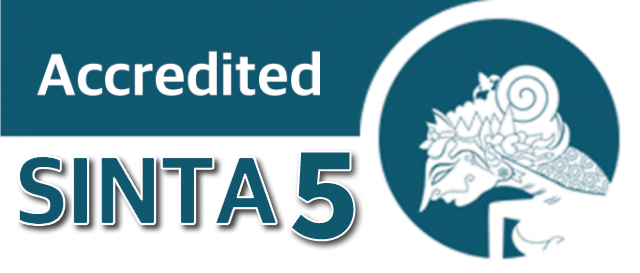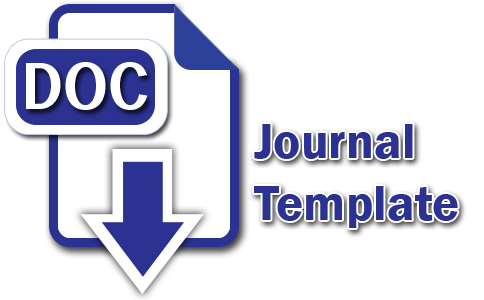PENGARUH EDUKASI MANAJEMEN DIRI TERHADAP DAN TEKANAN DARAH PASIEN HIPERTENSI DI RUANG RAWAT INAP RUMAH SANTA ELISABETH MEDAN
Abstract
Introduction: The risk for cardiovascular disorder caused by hypertension can be forestalled and controlled by applying healthy behavior such as exercises, cognitive symptom management, healthy diet, and blood pressure monitoring. In this case, education plays an important role in increasing the control of blood pressure. The objective of the research was to identify the influence of self-management education on healthy behavior and blood pressure in hypertension patients in the Hospital Elisabeth Medan Method: The research used quasi experiment and nonequivalent control group pre-post test design. The samples for this study were 60 hypertension patients as the respondents divided into two group, 30 in the intervention group and 30 in the control group taken by consecutive sampling technique. The data were gathered by using modification instruments from Stanford University; they were exercise behavior scale, cognitive symptom scale, questionnaires on healthy diet, and digital Omron tensimeter for measuring blood pressure Result: The data were gathered by using modification instruments from Stanford University; they were exercise behavior scale, cognitive symptom scale, questionnaires on healthy diet, and digital Omron tensimeter for measuring blood pressure. Data were analyzed using descriptive statistics, Wilcoxon and Mann Whitney test. The result of the research showed that there was no influence of self-management education on exercise (p-value = 1.00 > 0.05), there was the influence of self-management education on cognitive symptom (p-value = 0.00 < 0.05), there was the influence of self-management education on healthy diet (p-value = 0.00 < 0.05), and there was the influence of self-management education on systolic and diastolic blood pressure (p-value = 0.00 < 0.05).. Discussion: The conclusion of the research was that education could increase the application of healthy behavior and controlling blood pressure in hypertension patients. The result of the research could be an input for health care to maintain and increase education in hypertension patients so that they could control their blood pressure and forestall hypertension complication.
References
Appel L.J, et al. 2006. Dietary approaches to prevent and treat hypertension : a scientific from the American heart association. http://www.hyper.ahajournals.org
Balduino, A.F.A., Mantovani, M.F., Lacerda, M.R & Meier, M.J. (2013). Conceptual analysis of self-managemen of hypertensive individuals. http://www.scielo.br
Barlow, J., Wriht, C., Sheasby, J., Turner, A., Hainsworth, J. (2002). Self-management approaches for people with chronic conditions : a review. http://www.elsevier.com/locate/pateducou. Patient education and counseling (2002) 177-187 Bastable, S. (2002). Perawat sebagai pendidik : Prinsip-prinsip pengajaran dan pembelajaran. Jakarta : EGC
Beigi, M.A.B., Ziba, M.J., Aghasadeghi, K., Jokar, A.B., Skekar, F.S & Lehazraei, H. 2014. The effect of educational programs on hypertension management. IntCardiovasc ResJ 2014:8(3). http://www.ircrj.com Black, J.M. & Hawks, J.H. (2014). Keperawatan medical bedah manajemen klinis untuk hasil yang diharapkan. Ed 8. Singapore: Elselvier Bourne, P.A & Mc Growder, D. A. (2007). Socio-demographic determinants of health status of elderly with self-reported diagnosed chronic medical conditions in Jamaica. Journal Health. tp://www.scirp.org/journal Brady et al. (2013). A meta-analysis of health status, health behaviors, and health care utilization outcomes of the chronic disease self-management program. center for disease control and prevention, public health research, practice and policy. Prev Chronic Dis 2013;10:120112 doi: http://dx.doi.org/10.5888/pcd10.120112 ustan, M.N. (2015). Epidemiologi penyakit tidak menular. Jakarta : Rineka Cipta Dahlan, M. S. (2010). Besar sampel dan cara pengambilan sampel dalam penelitian kedokteran dan kesehatan. Jakarta : Salemba medika Darma, K. K. (2011). Metodologi penelitian keperawatan (Pedoman melaksanakan dan menerapkan hasil penelitian). Jakarta : CV Trans Info Media
Davies, N. (2011). Healthier lifestyles: behaviour change. Nursing Times; 107: 23, 20-23. http://www.nursingtimes.net Dinas Kesehatan Kota Medan. (2016). Laporan kejadian penyakit dasar triwulan I tahun 2016 wilayah kerja puskesmas kota medan. Medan : Dinkes Kota Medan
Douglas, B.M & Howard, E.P. (2015). Predictors of self-management behaviors in older adults with hypertension. Hindawi Publishing Corporation Advances in Preventive Medicine Volume 2015, Article ID 960263, 6 pages. http://dx.doi.org /10.1155/2015/960263 FCS. (2016). Breathing relaxation. Fcsstudent.blog.ryerson.ca. Retrieved 08/03/2016. http://www.Fcsstudent.blog.ryerson.ca.
Glanz, K & Maddock, J. (2002). Behavior, health-related. Encyclopedia of Public Health. http://www.encyclopedia.com/doc/1G2-3404000088.html Hartono, R. I.W & Hartono, A. (2014). Sehat dengan gaya hidup-terapi gizi medik untuk berbagai penyakit. Yogyakarta : Andi Offset
Hu, H., Li, G & Arao, T. (2013). Prevalence rates of self-care behaviors and related factors in a rural hypertension population: a questionnaire survey.
Hindawi Publishing Corporation International Journal of Hypertension Volume 2013, Article ID 526949, 8 pages http://dx.doi.org/10.1155/2013/526949 Huggins, C.E., Margerison, C., Worsley, A & Nowson, C.A. (2010). Influence of dietary modifications on the blood pressure response to antihypertensive medication. British journal of nutrition (2011), 105,248-255. http://www.britishjournalofnutrition.com Katzmarzyk, P.T & Lee, I.M. (2012). Sedentary behaviour and life expectancy in the USA: a cause-deleted life table analysis. http://bmjopen.bmj.com/ on February 23, 2016. BMJ Open 2012;2:e000828
Kemenkes, RI., 2007. Riset kesehatan dasar (Riskesdas) 2013.http://www.litbang.depkes.go.id/sites/Riskesdas 2013
Kemenkes, RI., 2013. Profil kesehatan indonesia 2013. http://www.depkes.go.id/profil kesehatan indonesia 2013












